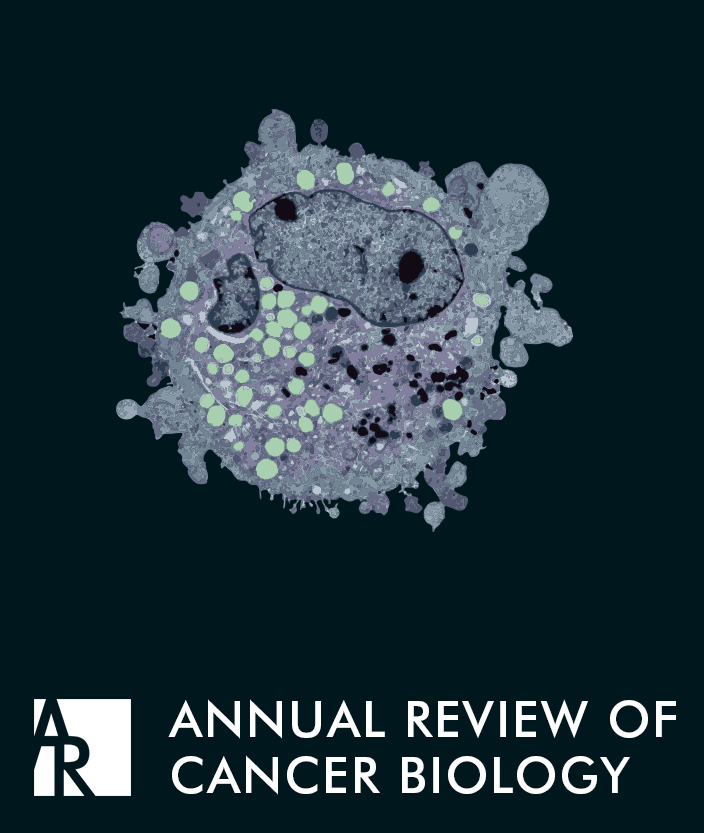将免疫微环境工程化为类器官模型
IF 6.1
2区 医学
Q1 ONCOLOGY
Annual Review of Cancer Biology-Series
Pub Date : 2023-01-17
DOI:10.1146/annurev-cancerbio-061421-040659
引用次数: 2
摘要
类器官模型通过其在3D培养中捕获肿瘤的细胞异质性和空间组织的能力,彻底改变了癌症研究。患者衍生的类器官也可以反映体外治疗的反应,为指导临床决策的个性化医疗打开了大门。随着癌症免疫治疗的蓬勃发展和开发新型免疫疗法的努力的增加,将免疫细胞纳入类器官共培养的模型以忠实地概括肿瘤微环境的复杂性的需求很高。为此,已经开发了各种各样的类器官免疫共培养方法,每种方法在使用的免疫细胞来源、培养中维持的免疫细胞类型及其特定用途方面有所不同。这篇综述的目的是将这些方法组织成一个框架,以帮助研究人员根据他们的实验需要选择合适的系统。我们还强调了几种已成功纳入类器官培养的非免疫细胞类型,以及这些共培养模型准备询问的生物学。预计《癌症生物学年度评论》第七卷的最终在线出版日期是2023年4月。修订后的估计数请参阅http://www.annualreviews.org/page/journal/pubdates。本文章由计算机程序翻译,如有差异,请以英文原文为准。
Engineering the Immune Microenvironment into Organoid Models
Organoid models have revolutionized cancer research through their ability to capture the cellular heterogeneity and spatial organization of a tumor in 3D culture. Patient-derived organoids can also mirror responses to therapy in vitro, opening the doors to personalized medicine that can direct clinical decision-making. As cancer immunotherapy has flourished and efforts to develop novel immunotherapies have increased, models that incorporate immune cells into organoid coculture to recapitulate the complexity of the tumor microenvironment faithfully are in high demand. To this end, a wide variety of organoid immune coculture methods have been developed, each differing in the source of immune cells used, types of immune cells maintained in culture, and their specific utility. This review aims to organize these methods into a framework that will aid researchers in choosing the appropriate system for their experimental needs. We also highlight several nonimmune cell types that have been successfully incorporated into organoid culture and the biology these coculture models are poised to interrogate. Expected final online publication date for the Annual Review of Cancer Biology, Volume 7 is April 2023. Please see http://www.annualreviews.org/page/journal/pubdates for revised estimates.
求助全文
通过发布文献求助,成功后即可免费获取论文全文。
去求助
来源期刊

Annual Review of Cancer Biology-Series
Medicine-Oncology
CiteScore
14.50
自引率
1.30%
发文量
13
期刊介绍:
The Annual Review of Cancer Biology offers comprehensive reviews on various topics within cancer research, covering pivotal and emerging areas in the field. As our understanding of cancer's fundamental mechanisms deepens and more findings transition into targeted clinical treatments, the journal is structured around three main themes: Cancer Cell Biology, Tumorigenesis and Cancer Progression, and Translational Cancer Science. The current volume of this journal has transitioned from gated to open access through Annual Reviews' Subscribe to Open program, ensuring all articles are published under a CC BY license.
 求助内容:
求助内容: 应助结果提醒方式:
应助结果提醒方式:


